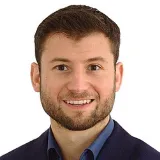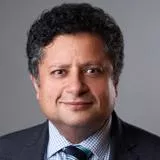For research endeavours such as ours to lead to better care for patients, ambitious multidisciplinary programmes across academic, clinical and industry partners are needed. I am delighted to get the support from NIHR to lead this project and further advance hyperspectral imaging technology and real-time artificial intelligence so as to provide new opportunities to develop advanced surgical vision technology that can assist the surgical team in delivering more precise surgery.
Tom Vercauteren, Professor of Interventional Image Computing at King’s College London and Chief Scientific Officer at Hypervision Surgical
06 October 2021
NIHR i4i product development award received for novel imaging system
The system will make brain tumour removal surgery safer and more complete

A consortium of researchers, clinicians, and industry partners have received an NIHR invention for innovation (i4i) product development award to support a clinical neurosurgery study and quality management system led product development for an intraoperative hyperspectral imaging (HSI) technology, designed to make brain tumour removal surgery safer and more complete. The award will allow the team to further develop an existing intraoperative prototype system to achieve commercial readiness with patient input and feedback from patient groups, while also informing on NHS benefits.
Through the course of the 3-year project involving the School of Biomedical Engineering & Imaging Sciences, King’s College Hospital and King’s College London spin-out Hypervision Surgical Ltd, the team will ultimately demonstrate clinical safety of the intraoperative HSI system for neurosurgery involving 81 patients – 18 neurovascular and 63 neuro-oncology patients – undergoing brain tumour and blood vessel surgery.
We are excited about this highly collaborative project to leverage world-class research and the clinical expertise at the King's MedTech ecosystem to fast-track conversion of our technology into a commercial medical device and push the boundaries of surgical care.
Dr Michael Ebner, CEO and Co-Founder of Hypervision Surgical Ltd
Brain surgery operations include brain tumour removal and blood vessel procedures. Each year in the UK, approximately 70,500 patients are diagnosed with a brain tumour, 5,000 of whom undergo surgery. Approximately 1,000 patients undergo blood vessel brain surgery. For surgeons, the complication lies in reliably identifying and distinguishing between tumour, healthy brain structures as well as nerve and blood vessels. Often, tumour is left behind resulting in repeat surgery.
Further surgeries are more difficult, pose additional patient risks and lead to increased healthcare costs with often poor patient outcomes.
Newly developed camera systems such as HSI can aid surgeons in more reliably and safely identifying and removing tumour as it aims to provide currently unavailable detailed information that is otherwise invisible to the human eye during surgery.
Previously in a clinical feasibility case study and ex-vivo study, it was demonstrated that the research system seamlessly integrates into an operating workflow, with minimal disruption to surgery.
Each study provided crucial insights to develop a system suitable for acquiring high-quality data in a highly dynamic and constrained environment as it is in an operating room during surgery.
This project will further advance the prototype, refine the setup and develop key computer-processing features as HSI data is very complex and requires advanced computer-processing for its interpretation.
As part of a 2-year clinical study, the team will collect comprehensive intraoperative HSI data ranging from healthy brain structures to multiple brain tumour types which can be retrospectively correlated with histological analysis of excised tumour tissue.
This will allow capture of clinical safety data of the system in addition to the creation of paired data vital for developing machine learning-based algorithms for both tissue property and type estimations.
The study also involves patient input and feedback from patient groups, forming a Patient Advisory Group to advise on all stages of the project.
This exciting project has the potential to significantly improve the care of neurosurgery patients. We will work closely with patients and the public during this award to ensure that the project meets the needs of patients and will publicise the study’s results through a variety of patient-led activities and public events.
Mr Jonathan Shapey, Senior Clinicial Lecturer at King’s College Hospital, Consultant Neurosurgeon at King’s College Hospital and Clinical Lead at Hypervision Surgical
We are delighted to be the recipients of the i4i award. Our intra-operative hyperspectral imaging technology fills a clinical gap in neurosurgery and allows for safer, more radical surgery for our patients with brain tumours. It will really help achieve the best outcomes for our patients.
Professor Ashkan Keyoumars, Professor of Neurosurgery and Consultant Neurosurgeon at King’s College Hospital
By the end of the project, the technology will be ready for MHRA submission and for inclusion in prospective clinical efficacy studies.
This project is funded by the National Institute for Health Research (NIHR) i4i Product Development Award. The views expressed are those of the author(s) and not necessarily those of the NIHR or the Department of Health and Social Care.



